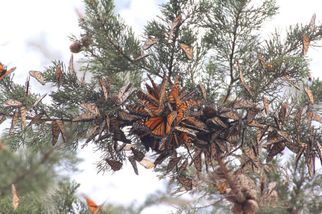 Sermon snippets: James 3:13-18 and the sacred texts of monarchs "...When we greet God’s beloved creation - like a new day, or our own selves, or any of the life all around us, when we greet God's beloved creation with gratitude and eager expectation and curiosity, we find we do have what we need. Planting seeds of gratitude by starting the day with thanks for the new day whether sunny or gloomy or chilly or sweltering. With thanks for our bodies, whether old and feeble or young and sturdy or aching or sagging or supple, giving thanks for these bodies that are our sensual vessels through this world – with thanks for the bodies God gave us to feel and taste and hear and touch and see and smell this whole world, both pleasure and pain. We plant seeds of gratitude and we can trust that we will harvest fruits of generosity and hope. And there’s still all sorts of mystery. We plant honey locust seeds and we’ll get honey locust trees, maybe they won’t all survive, some will have thorns and some won’t, but we won’t get pear trees. But when we plant seeds in our hearts and our families and our communities the results aren’t so clear. Parenting is like this, in such a frustrating and painful way. The best parenting we can offer, planting seeds of love for God and kindness to others and sharing with people and living gently in this Earth, and children, young and old, don’t only or always bear these fruits. We say the apple doesn’t fall far from the tree, and sometimes that’s true, but sometimes our children don’t reflect our hopes for them at all, and it can feel like failure, and it can be scary, and it can hurt so much. We find this in our families, and in our work, when our best still isn't enough some days, or when the systems we're part of are so powerful that it seems we'll never impact them. What should we do, then? Stop planting seeds of peace and love and generosity and wisdom? Will the hurt and fear of not being able to control the fruit keep us from planting the best seeds we can? I wonder if we can be faithful with our planting regardless of the outcome.... I was amazed by the million monarchs I met in Mexico, but there should have been 20 times as many. Why does it really matter, you might be thinking, since there are so many other kinds of butterflies anyway? But butterflies, like bees, are pollinators, so we simply, truly, cannot eat without them. And monarchs travel further – by far – than any other kind of pollinator. We’re just beginning to understand how dangerous a world with few bees can be, we don’t actually have any idea what will change, including what plants and foods might disappear, without monarchs. The monarchs might be worried, they might be scared, they might be angry. But they just keep flying. They keep laying eggs on milkweed plants and sending ancestral memories through antennae and wings and traveling thousands of miles year after year. These creatures that live a couple weeks and see one stretch of the journey, or live a couple months and fly the whole way, these butterflies so light we can’t feel them on our hand but when we listen can hear them fly by, these monarchs just keeps flying because that is what they are created to do. Just like we keep planting seeds of peace because that is who we are created to be, regardless of the fruits we produce. We plant seeds of peace and patience and wisdom because it is the right thing to do, it is how we are called to live, it is who we are as God’s people. And we even plant milkweed, because God's creation teaches us that what seemed a weed has true worth, that the stone that the builders rejected becomes the cornerstone of a whole new world, the kingdom of God. The fragile monarch, the lowly infant king, full of wisdom and mysteries still unfolding in our midst. Where in your life are you in need of flight? What relationship or job or health concern or political issue is defining you? Rise above these challenges, at least for a moment... For a moment now, here, close your eyes if you're comfortable, breathe deeply, and take flight. Soar above your worries and recall that you are whole and holy. The world is waiting for you when you return to earth so leave it be for a moment. As you soar, let your cares melt away and remember that you are beloved...."
0 Comments
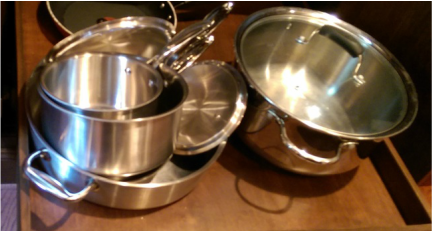 Sermon snippets: Matthew 11:28-12:8 "...Food is one of our first teachers in life. We learn through our mother’s breast, through snuggling into loving arms holding a bottle, through growing into eye contact in the midst of eating, we learn that food makes us feel better, and that food is a language of love. If we’re lucky, as babies we got food and love in one intimate embrace, and those moments taught us to form attachments with people throughout the rest of our lives. Jesus feeds people throughout the gospels as a declaration of love. He feeds the multitudes at the Sea of Galilee through the miracle of sharing, with loaves and fishes leftover. He breaks bread and pours wine for his friends and followers in the upper room the night before he dies, proclaiming that it is his own flesh and blood that he gives them for nourishment. There is no greater love than this. And this morning we remember how he gleans grain with the disciples and all are fed.... ...we know Jesus stumbles under the unthinkable burden of the cross, and asks us to choose love and self-sacrifice in his way, and we know that is impossibly heavy. So what could he mean when he says his yoke is easy and his burden is light? Well if we keep reading in Matthew, next comes the story of Jesus and the disciples gleaning grain on the Sabbath. The Pharisees are upset and Jesus teaches them that the Sabbath was created for us, we were not created for the Sabbath. Jesus changes the rules, or understands the rules better than everyone else, to make the world work for people. Jesus loves us so much that he finds a way for everyone to be fed, on the hillsides at the Sea of Galilee feeding the multitudes with a few fish and some crusts of bread, Jesus changes the rules of sharing and physics to create enough for all. Before his execution Jesus turns a meal into a ritual of remembrance and radical service so that his friends and followers will always have him close. He changes the rules of life and death so that he can dwell in us, that we can be his body, anytime and anywhere. And so it’s no big deal that Jesus changes – or at least reinterprets – religious rules about the Sabbath so that the disciples are fed in this field on this day. Jesus’ yoke is easy and his burden is light because he loves til our hunger is fed. Jesus loves us til our thirst is quenched. Jesus loves us til our bondage is broken. Jesus loves us til our pain is soothed. And Jesus asks us to keep acting as his hands and feet in this world, to feed in his name.... 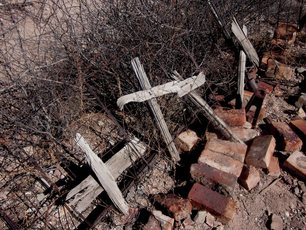 Sermon snippets Ezekiel 37: 1-6 & Isaiah 35:4-7a "...But most of the hundreds who die crossing every year die in the desert, dehydrated, confused, abandoned, lost, or injured. The hundreds who die every year are aching for streams in the desert, for a tiny miracle, for a fresh start. These deaths are on US sand and soil, but the US takes virtually no responsibility for these undocumented workers, these fathers and mothers, these daughters and sons. Even if you call them illegal aliens, we're told throughout scripture to welcome and care for orphans, widows and aliens. Then Jesus says that whatever you have done for the least of these, you have done for him - welcoming the stranger and feeding the hungry and so forth. And then Paul says to show hospitality to strangers, for in so doing we may be entertaining angels without knowing it. Jesus says that anyone who gives a cup of cold water to the thirsty ones will be eternally rewarded. A cup of cold water is the stream in the desert, the tiny miracle, the fresh start. Taking the bible seriously, some folks in Arizona call themselves Samaritans and journey throughout the desert to save lives - offering water, food, first aid and kind words to those seeking safe passage. I think Beth might know something about that. We have Good Samaritans combing the deserts and still, hundreds of bodies are found each year, and those on the border know that many more die and are never found. Ezekiel could raise a multitude in these valleys of dry bones. When these bones are enfleshed and enlivened, the stories they tell are painful. A young woman I knew in Minneapolis remembers riding home from the grocery with her mother and sister when she was 8. Her mother isn’t a documented immigrant, so she can’t get a driver’s license. She got pulled over for a broken taillight and their car was impounded since she didn’t have a license. My friend remembers the three of them sitting on the curb with their bags of groceries, humiliated, exhausted, afraid of what would happen when their mother went to court. Their barren desert in the land of 10,000 lakes, their unquenchable thirst for freedom in this land of the free, their cracked hopes for this parched land of liberty that proclaims “give me your tired, your poor, your huddled masses yearning to breathe free....” "This week our eyes were wrenched open and our hearts were broken by photos of Aylan Kurdi, the 2-year-old Syrian refugee who drowned with his 4-year-old brother and their mother as they fled a war-torn land into a sea of danger, toward a skeptical Europe. Just like some US Americans worry that migrants will make our lives harder, many Europeans worry about the rising number of migrants coming to their countries. But migrants and refugees risking their lives, leaving behind loved ones, venturing toward a foreign land where they don’t speak the language and don’t know where they’ll sleep, only risk and sacrifice this much because they are desperate. Whether through the economic violence of NAFTA or military violence of each new Middle Eastern war, rich people in the US and Europe are getting richer as poor people get more and more desperate. And then poor people get pitted against poor people – and race and ethnicity are easy ways to convince poor people they’re enemies rather than comrades. Rather than offer refugees and migrants a cup of cold water, a stream in the desert, a tiny miracle, a fresh start, we have a 30 foot high concrete wall, we have border patrol and militia men with guns, we have dangerous low-paying jobs, we have racism and resentment...." "Ezekiel's moment in the valley of dry bones is one of the most dramatic stories of scripture, and it tells a tale of restoration that can only begin with death. We practice this morning, in our prayer of confession and reconciliation, letting our fears turn to dust. Letting our prejudice die. Letting our despair decay. When we let it all go, we let God turn it all upside down, and bring new life from death, from decay, from dust...." 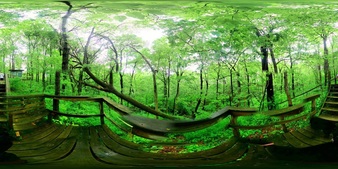 Sermon snippets: James 1:22-25 "...Being hopeful doesn't mean everything will always work out the way we want. Being doers of the word doesn’t mean we always act perfectly. But hope is bigger than any single tragedy. Our faithful activity in this world is bigger than any specific success. Jesus doesn’t just teach us this through the lilies of the field and the birds of the air. He says to look at this children, to be and do as children to live in the kindom of heaven. The front of our bulletins today shows an earnest, hopeful, active kid proclaiming peace and picking berries. Kids are brilliant because, like my dog Sula or lilies or birds, they haven’t learned to be cynical and worry and argue and find excuses for inactivity. Kids know the perfect law of liberty because they haven’t acquired baggage that takes away their freedom. The philosopher Nietzsche says that we should act with the seriousness of a child at play. Picture that... I saw our children seriously play at the park yesterday during our picnic with Bethel AME. Bodies, mind and spirits all in sync. How often do you live that way? As you kids played yesterday you threw your whole selves into it, and when you got hurt or disappointed you felt it fully, then went back to play with a little more savvy. We adults get hurt or disappointed and sometimes we just get stuck, we shut down, we don't get back to work or play.... Where are you stuck? If you knew you could not fail, what would you do?...." |
Archives
January 2022
|
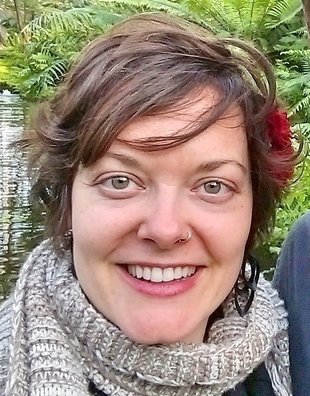
 RSS Feed
RSS Feed